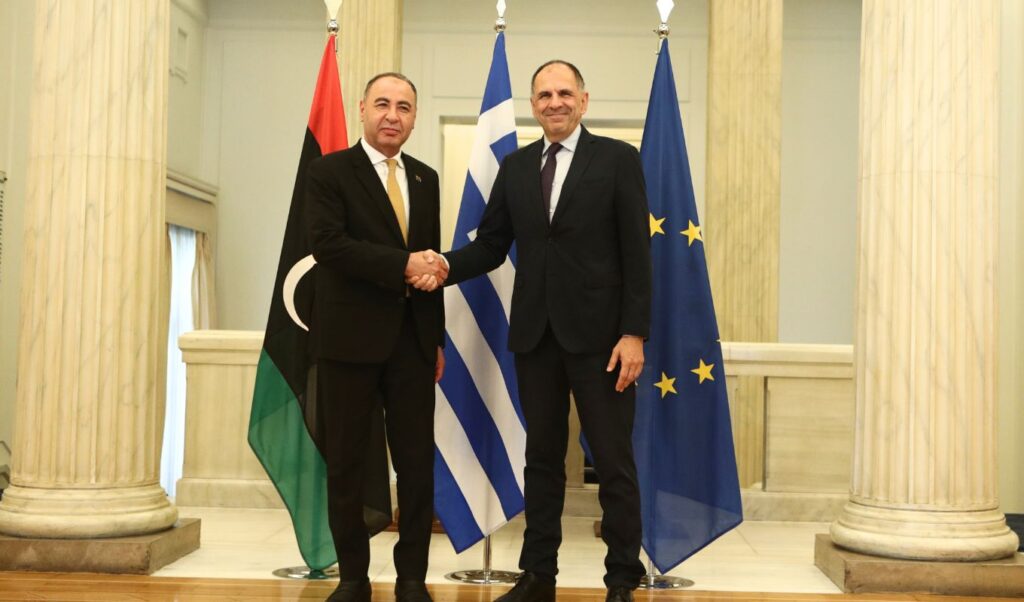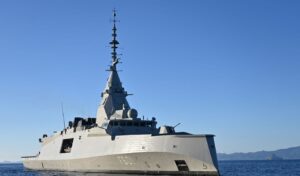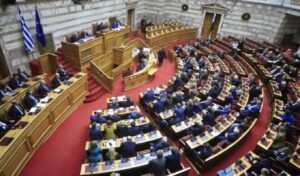Fifteen years later, Greece and Libya are once again beginning dialogue to define the Exclusive Economic Zone (EEZ) between the two states, as decided during yesterday’s visit of Libya’s acting Foreign Minister, Taher Al-Baour, to Athens. The start of the dialogue process came earlier than Foreign Minister Giorgos Gerapetritis had previously announced, when he had scheduled it for early October.
The negotiation process between the technical committees is expected to last a considerable period, with no one able to predict the outcome at this stage. A key element, however, is that even if the two countries fail to agree on defining EEZ boundaries, the possibility of resorting to The Hague is mutually acceptable, as both countries have previously declared that they respect and accept the rules of International Law and International Maritime Law.
Read: Meeting of Gerapetritis with Libyan officials: New era in bilateral relations and EEZ (Images)
“Very positive climate” in the meeting between Gerapetritis and Libya’s Foreign Minister, Taher Al-Baour
The start of negotiations between Athens and Tripoli appears to end the tug-of-war of recent months and restore dialogue to bilateral relations. This is confirmed by diplomatic sources who characterized the climate between the two ministers as “very positive,” as it was also among the members of the technical committees that will conduct the dialogue.
According to a Foreign Ministry announcement, the head of Greek diplomacy also raised the issue of the Turkey-Libya memorandum with his counterpart. Giorgos Gerapetritis reiterated to Taher Al-Baour the Greek and European position that the memorandum signed in 2019 between Tripoli and Ankara is rejected as invalid and void, while he also emphasized the need to respect International Law, including International Maritime Law. In fact, according to diplomatic sources, the Greek side raised the issue of the Turkey-Libya memorandum yesterday “at all levels and in the negotiating teams,” though they did not clarify the stance taken by the Libyan side on this issue. The same sources, however, report that during the first meeting the committees did not enter into substantive matters, as it was exploratory in nature, while it was agreed that the next session will take place in Libya at a time not yet determined.
It is worth noting that the first session was held under the chairmanship of the Foreign Ministry’s Director General, Andreas Fryganas, as Deputy Foreign Minister Alexandra Papadopoulou, who heads the Greek committee, was absent. Ms. Papadopoulou has been in Washington since yesterday, where she will have meetings with Congress members and officials of the United States government.
Illegal immigration also on the “table”
However, during the three-hour Gerapetritis-Baour meeting, they also discussed addressing the problem of illegal immigration, despite the fact that the departure point for the large volume is located in eastern Libya. The two ministers decided to strengthen their cooperation in this area, with the Greek side declaring readiness to continue providing training to Libyan coast guard personnel to prevent illegal immigration. Additionally, it was decided to strengthen cooperation in sectors such as economy, energy, transport, and construction. As agreed, within autumn a group of businessmen will visit Tripoli for reconstruction projects in the region, while simultaneously the Athens-Tripoli air connection plan appears to be progressing.




